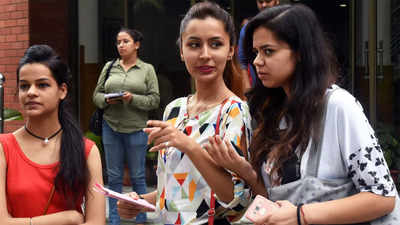
The decision to cancel the UGC-NET, initially announced by the Ministry of Education, has sparked widespread debate and dissatisfaction among students and academic professionals. The Ministry's move was intended to address alleged irregularities and procedural issues in the examination process. However, the abrupt cancellation has led to considerable confusion and frustration among those who had prepared extensively for the test.
The petitioners, who sought the Supreme Court's intervention, argued that the cancellation of the exam without a clear alternative plan would adversely affect thousands of candidates who were counting on the test for their academic and professional advancement. They emphasized that a sudden change in the examination schedule could derail their career plans and create an environment of instability.
The Supreme Court's refusal to intervene came after reviewing the arguments presented by both the petitioners and the government. The Court expressed concerns that reinstating the exam under the current circumstances might exacerbate the situation rather than resolve it. The judges highlighted that the decision to cancel the exam was made with the intent of ensuring the integrity and fairness of the examination process, and that any reversal could undermine these objectives.
The Central Government has assured that it is working on a new examination framework to address the concerns raised by the cancellation. The Ministry of Education has promised that a revised plan will be announced in due course, aiming to restore order and provide clarity for affected candidates. However, this promise has done little to quell the discontent among students who are left in a state of uncertainty.
Academic institutions and education experts have weighed in on the situation, expressing mixed opinions. Some support the government's decision as a necessary step to clean up the examination system, while others criticize the lack of a well-defined strategy to manage the transition. The controversy underscores the broader challenges facing the Indian education system, where issues of transparency, fairness, and efficiency are often at the forefront of public debate.
The impact of this decision on the academic and professional trajectories of countless individuals remains to be seen. As the government prepares to roll out its revised examination plan, stakeholders are keenly watching for developments that will determine the future of the UGC-NET and the broader implications for higher education in India.
The Supreme Court's ruling highlights the delicate balance between administrative decisions and their repercussions on the public. As the situation evolves, it will be crucial for the authorities to manage the transition smoothly and ensure that the integrity of the examination process is upheld, while also addressing the legitimate concerns of those affected by the cancellation.
